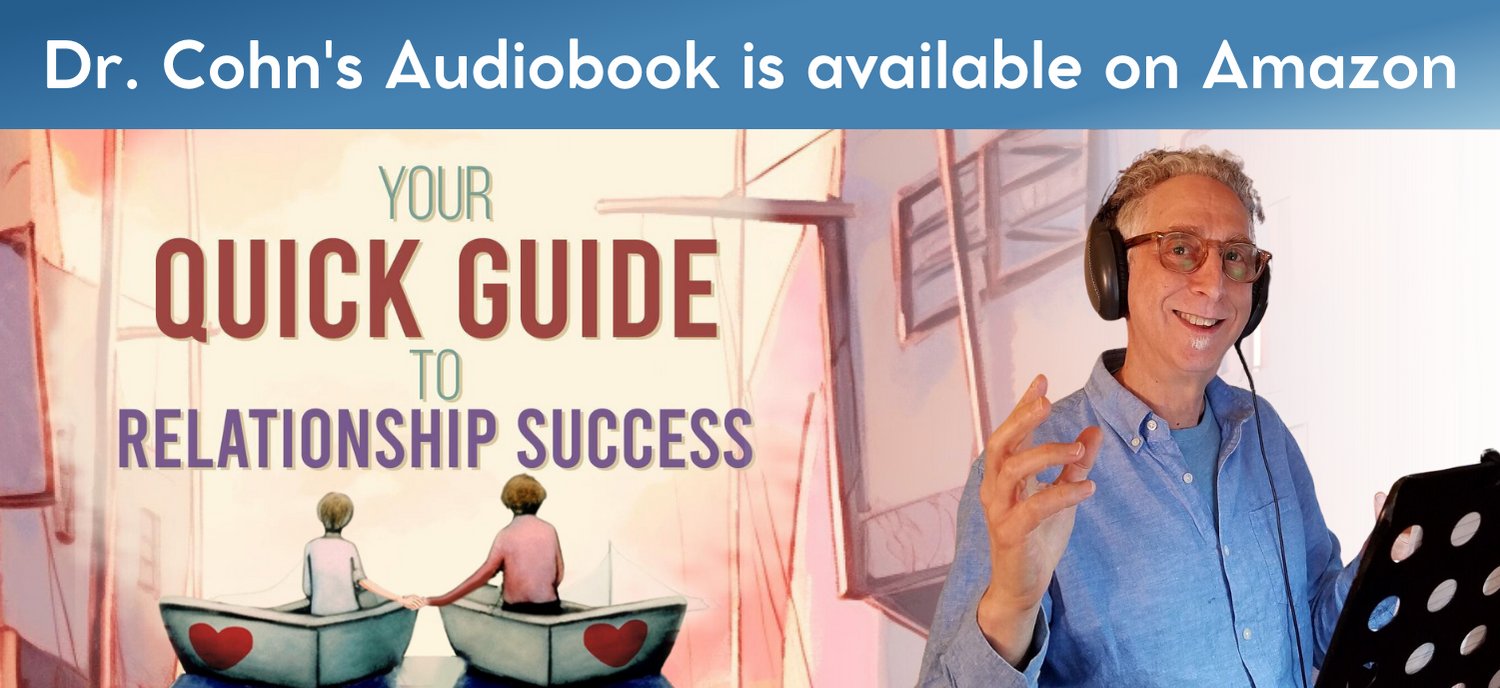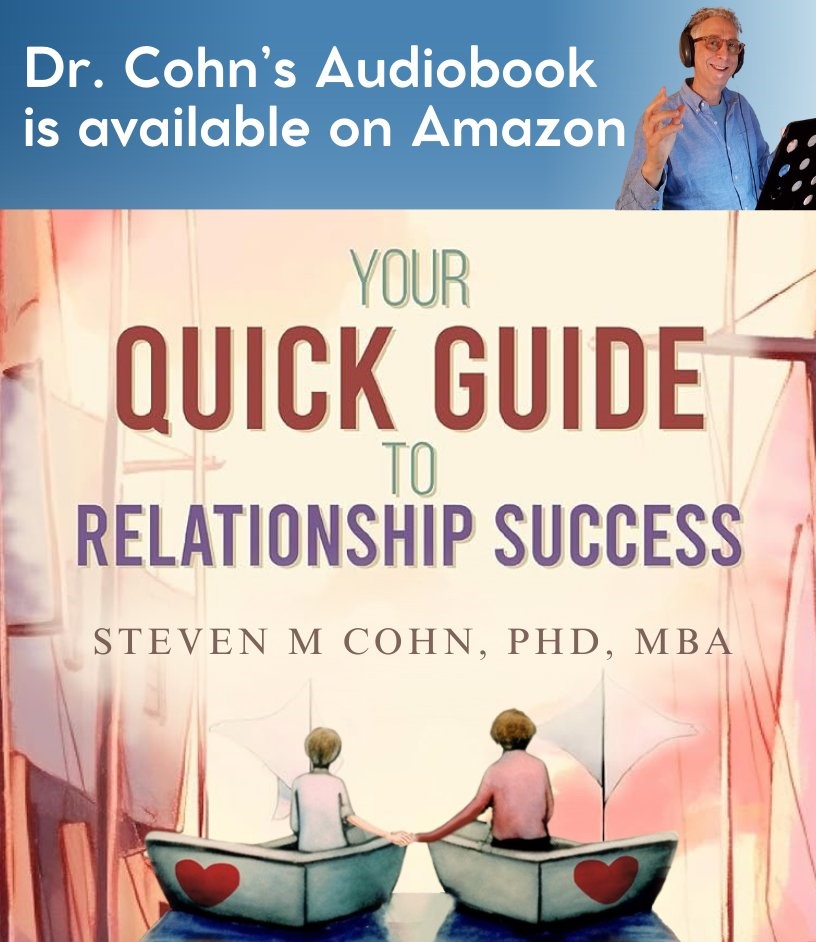- Home
- Infidelity
- Discovering Infidelity
Discovering Infidelity
When you are first discovering infidelity, you are likely to be faced with a number of huge questions, the biggest of which is whether or not to try to save your relationship.
Steven M Cohn, PhD, LMFT
Virtual Marriage and Couples Counseling
Serving Clients Throughout Oregon
503-282-8496

What to do Upon Discovering Infidelity
Studies have shown there is a definite difference between people in how they react to finding out about an affair
For example, one study found that men who catch a cheating spouse are less likely to be able to forgive their partners and more likely to terminate the relationship. Women who uncover adultery, on the other hand, are more likely to forgive and try to repair the relationship.(1) It is important to consider this distinction, as the person discovering infidelity these days is just as likely to be a man as a woman.(2) It is also important to remember that finding out about an affair goes beyond simply finding your partner in bed with someone else. Discovering infidelity may mean that you have found an e-mail relationship or even telephone sex.
Another study suggests that the reaction you will have to infidelity depends upon your attachment style. Those who have secure attachment styles were likely to want to talk about the issue. Anxious/ambivalent communicators were likely to avoid conversation. However, both types were apt to continue their relationships. People who have avoidant attachment styles are likely to avoid their mate after an affair is disclosed, tending to choose termination of the relationship rather than trying to work it out.(3)
While an affair may feel like the beginning of the end, many couples find that by working together to repair their relationships, they can build a stronger partnership than they had before. A Relationship Specialist can help you work through the feelings you may have after discovering infidelity. One therapist suggests that as many as 20% of his clients have been traumatized after discovering infidelity, and about half of those affected show intense and prolonged stress reactions, “similar to those who have had life-threatening experiences such as war, natural disasters, violent crimes, physical and sexual abuse, and automobile accidents.” Some become pre-occupied with the betrayal and are filled with rage, suffering from what the author calls “post-infidelity stress disorder.”(4)
Studies support the premise that affairs produce real stress reactions in people. One experiment measured the amount of the stress hormone cortisol found in saliva after various interpersonal transgressions, such as uncovering an affair. Depending on the degree to which the person focused on the event, that person produced higher levels of cortisol. The authors felt that cortisol may serve a protective mechanism, helping people to avoid subsequent relationships that may threaten their well-being.(5)
An affair can be devastating, but you need not face the trauma alone. Click the blue link if you want to chat with others who have also gone through the same experience of discovering infidelity. And when you are ready to get some help in overcoming the anger you may be feeling, seek the assistance of a qualified Relationship Specialist.
Discovering whether a spouse is cheating can be a sensitive and challenging situation. It's important to approach the situation with care and considerate communication. While these signs may indicate potential infidelity, they are not definitive proof, and it's crucial not to jump to conclusions without a thorough understanding of the situation. Here are some potential signs to be aware of:
- Changes in Behavior: Sudden changes in behavior, such as increased secrecy or defensiveness. Unexplained emotional distance or withdrawal. Changes in communication patterns, like avoiding eye contact or becoming evasive.
- Altered Schedule: Unexplained and frequent absences or changes in routine. Unaccounted-for time that your spouse is unable or unwilling to explain.
- Changes in Intimacy: Decreased intimacy or a sudden lack of interest in physical intimacy. Changes in sexual habits or preferences.
- Increased Secrecy: Guarding their phone or being unusually protective of their privacy. Password changes on devices or social media accounts.
- Emotional Changes: Unusual emotional reactions, such as guilt, anger, or defensiveness. Decreased emotional connection or engagement with you.
- Financial Clues: Unexplained expenses or changes in financial behavior. Discovery of hidden financial transactions.
- Social Behavior: Changes in social habits, like spending more time away from home. Unexplained social connections or relationships.
It's important to note that these signs can also be attributed to other factors, such as stress, work-related issues, or personal challenges. Before jumping to conclusions, consider having an open and honest conversation with your spouse about your concerns. Effective communication is key to understanding each other's perspectives.
If suspicions persist, seeking professional help, such as couples therapy or counseling, can provide a neutral and supportive environment to address relationship issues. Remember that trust and communication are fundamental in any relationship, and approaching the situation with empathy can contribute to a healthier resolution.
Endnotes
1) Shackelford, Todd K., Buss, David M., and Bennett, Kevin. Forgiveness or breakup: Sex differences in responses to a partner's infidelity. Cognition & Emotion 16(2): 299-307, March, 2002.
(2) Cossman, Brenda. The New Politics of Adultery. Columbia Journal of Gender and Law 15:274, 2006.
(3) Jang, Su Ahn, Smith, Sandi, and Levine, Timothy. To stay or to leave: the role of attachment styles in communication patterns and potential termination of romantic relationships following discovery of deception Communication Monographs 69(3): 236-252.
(4) Ortman, Dennis C. Post-Infidelity Stress Disorder. Journal of Psychosocial Nursing and Mental Health Services 43(10). October, 2005.
(5) McCullough, Michael E., Orsulak, Paul, Brandon, Anna, and Akers, Linda. Rumination, Fear, and Cortisol: An In Vivo Study of Interpersonal Transgressions. Health Pyschol 26(1): 126-32, January, 2007.
Share
Follow

Steven M Cohn, PhD is honored to have been featured on CNBC.com.

Steven M Cohn, PhD is pleased to have been featured on Koin 6 Television: "Boost In The Bedroom."

Steven M Cohn, PhD is pleased to have been featured on both KATU.com and KATU Channel 2 Television.

Steven M Cohn, PhD is pleased to have been featured on Oregon Live "Why Oregon's Latest Divorce Statistics May Be Divorced From Reality"

Steven M Cohn, PhD, MBA, LMFT has been named one of the top three marriage counselors in Portland, Oregon three years in a row by the non-profit organization Three Best Rated
Did Your Husband, Wife, or Intimate Partner Cheat on You?
Don't let infidelity, an affair, or a one-night stand destroy your relationship.
With professional intervention it is often possible to work through the pain of betrayal and come out stronger on the other side.
Steven Cohn, PhD is a seasoned Relationship Specialist with extensive experience in working with couples struggling to recover after an affair.
503-282-8496



